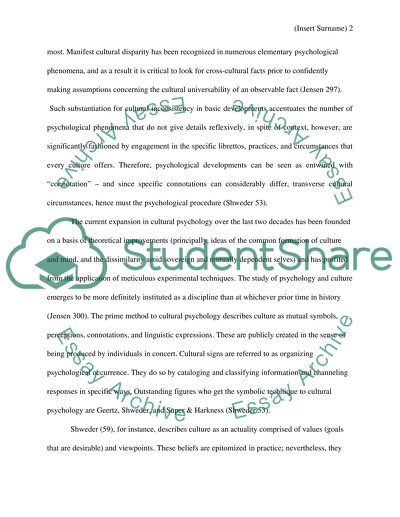Cite this document
(“Cultural Psychology Essay Example | Topics and Well Written Essays - 1000 words”, n.d.)
Cultural Psychology Essay Example | Topics and Well Written Essays - 1000 words. Retrieved from https://studentshare.org/psychology/1438892-cultural-psychology
Cultural Psychology Essay Example | Topics and Well Written Essays - 1000 words. Retrieved from https://studentshare.org/psychology/1438892-cultural-psychology
(Cultural Psychology Essay Example | Topics and Well Written Essays - 1000 Words)
Cultural Psychology Essay Example | Topics and Well Written Essays - 1000 Words. https://studentshare.org/psychology/1438892-cultural-psychology.
Cultural Psychology Essay Example | Topics and Well Written Essays - 1000 Words. https://studentshare.org/psychology/1438892-cultural-psychology.
“Cultural Psychology Essay Example | Topics and Well Written Essays - 1000 Words”, n.d. https://studentshare.org/psychology/1438892-cultural-psychology.


